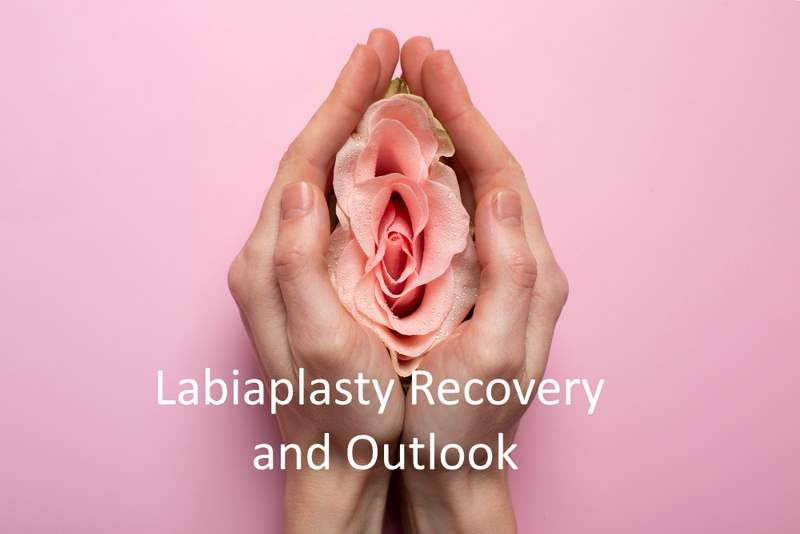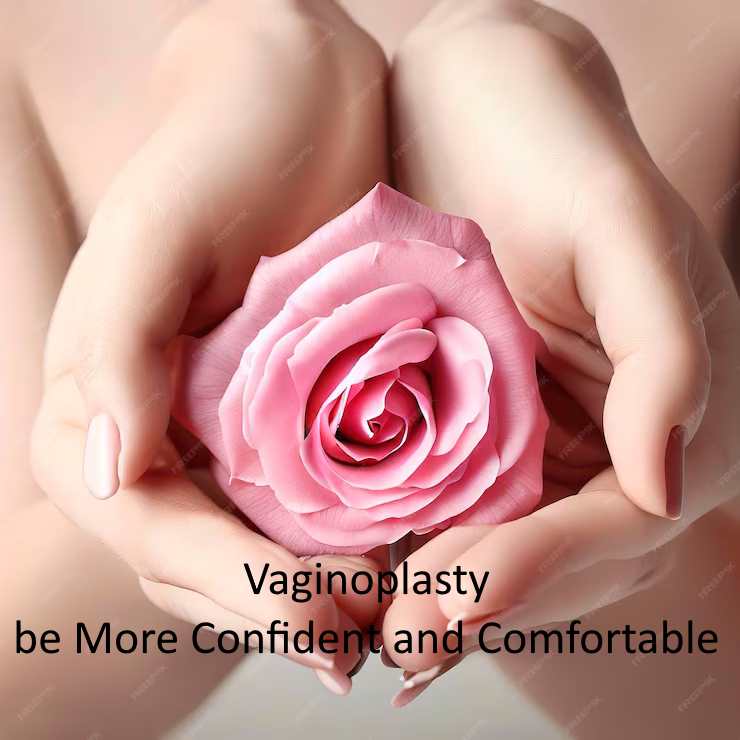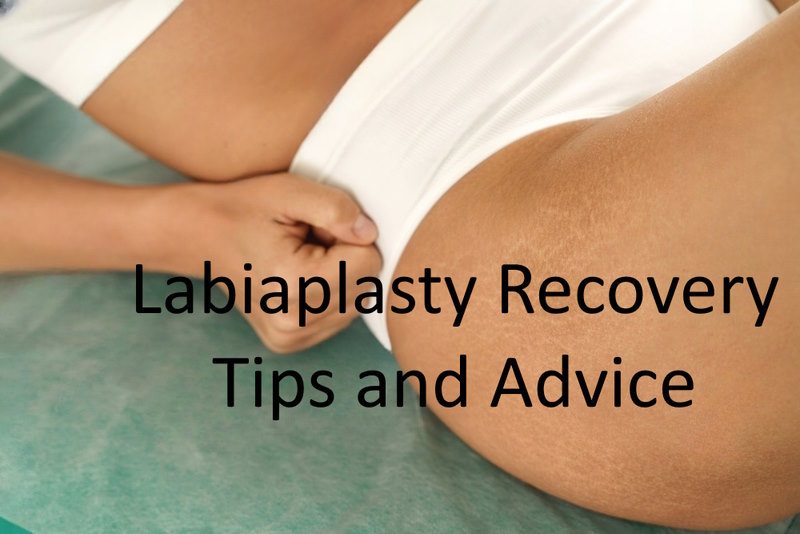Labiaplasty Recovery and Outlook: Labiaplasty is a surgical procedure that can bring about positive changes in your life, but like any surgical process, it comes with questions and uncertainties. This comprehensive guide will help you understand what to expect during your labiaplasty recovery and what the future holds.
Is Labiaplasty Painful?
It’s natural to wonder about the discomfort and pain associated with labiaplasty. Fortunately, most patients find the pain manageable with over-the-counter medications like acetaminophen (Tylenol®) or prescription medication for a day or two. If you find your discomfort hard to control, don’t hesitate to contact your surgeon.
Home remedies, such as using a cold compress or icepack (applied over a cloth undergarment), can also provide relief. Applying an ice pack for 20 minutes on and 20 minutes off can effectively reduce pain and swelling. Most people generally report experiencing only mild pain or tenderness for a few days.
Your healthcare team may prescribe an oral antibiotic or a topical antibiotic to apply to your surgical wound to prevent infection.
During the healing period, opt for loose-fitting pants and undergarments. Tight-fitting clothing can cause friction against the wound, potentially hindering the healing process.
Will There Be Much Bleeding?
It’s normal to experience some bleeding for up to a week or so after labiaplasty. You can use a pad to absorb this minor bleeding, which should gradually subside.
Labiaplasty Recovery and Outlook: When Will Results Be at Their Very Best?
Expect the initial swelling, soreness, and temporary discoloration to diminish within the first couple of weeks after surgery. Most of the swelling should resolve after six weeks.
However, it may take up to four to six months of healing time for the swelling to completely subside, revealing the final results of your labiaplasty. Fortunately, there is typically little to no scarring.
How Do I Care for My Labia Area After Surgery?
After labiaplasty, it’s crucial to use lukewarm water only (no soap) to cleanse the surgical wound gently. When urinating, avoid rubbing the surgical area; instead, gently wipe or dab the area dry.
Your surgeon may also recommend medication or dietary adjustments to prevent constipation, as straining during bowel movements can weaken or rupture your stitches.

Follow all post-operative instructions provided by your healthcare provider regarding:
- Urination and bowel movements.
- Keeping the surgical area clean and free from bacteria.
- Allowing the surgical area to heal.
When Can I Return to Work, Physical Activity, and Sexual Activity?
You should be able to return to work and engage in light activities after a few days. However, if your job involves physical activity or heavy lifting, you may need to take more time off. For the best recovery, avoid the following activities for four to six weeks, or until your surgeon gives you the green light:
- Strenuous exercise.
- Physical activities like cycling, running, and swimming.
- Sexual intimacy.
Resuming these activities prematurely can exert pressure on the surgical site, potentially causing stitch tears and delaying the healing process.
How Long Do the Results of Labiaplasty Last?
Labiaplasty, mainly when performed as a reduction surgery, is intended to be a one-time, long-lasting procedure. Unless complications arise, you may never require this surgery again. However, enhancement labiaplasty involving fat or filler injections may necessitate occasional “touch-up” procedures over time.
It’s important to note that if you plan to have children after your procedure, it may affect the results of your labiaplasty. Many individuals choose to wait until after completing their families to undergo labiaplasty.
Labiaplasty Recovery and Outlook: When to Call the Doctor
Understanding when to contact your surgeon is vital for your recovery. You should call your surgeon’s office if you experience any of the following:
- Excessive swelling or worsening pain.
- Increased bleeding or the presence of blood clots.
- Discolored pus or discharge.
- Severe pain during urination or bowel movements.
- Fever.
- Opening of the surgical site.
Additional Details: Questions to Ask Your Surgeon
Before undergoing labiaplasty, it’s essential to have all your concerns addressed. Here are some questions you should consider asking your surgeon:
- Am I a suitable candidate for surgery?
- What is the expected recovery time?
- What technique will you use during the procedure?
- What are the potential risks and complications?
- When will I see the expected results, and how long will they last?
- How much does the surgery cost?
- Is labiaplasty covered by insurance?
Common Concerns Addressed
Does Labiaplasty Cut Off Nerves?
No, labiaplasty does not involve cutting or relocating any nerves as part of the procedure.
Does Labiaplasty Increase Pleasure?
While some believe labiaplasty might enhance sexual satisfaction, the evidence supporting this is limited. Research suggests no significant changes in sensation, lubrication, or orgasm.
However, labiaplasty can alleviate pain related to intercourse for some individuals, potentially enhancing overall sexual enjoyment. Additionally, improvements in self-esteem and satisfaction with the appearance of your genitals may positively influence your sexual experiences.
Can Skin Grow Back After Labiaplasty?
After labiaplasty, your skin will not grow back. However, it can still stretch, particularly during childbirth.
In Closing:
Discussing intimate matters like labiaplasty can be uncomfortable, but remember that your surgeon is there to support you, no matter your reasons for considering the procedure.
Don’t hesitate to share your goals and concerns with your surgeon. They will provide detailed information about the procedure, what results to anticipate, and answer all your questions. Your well-being and satisfaction are their top priorities.





